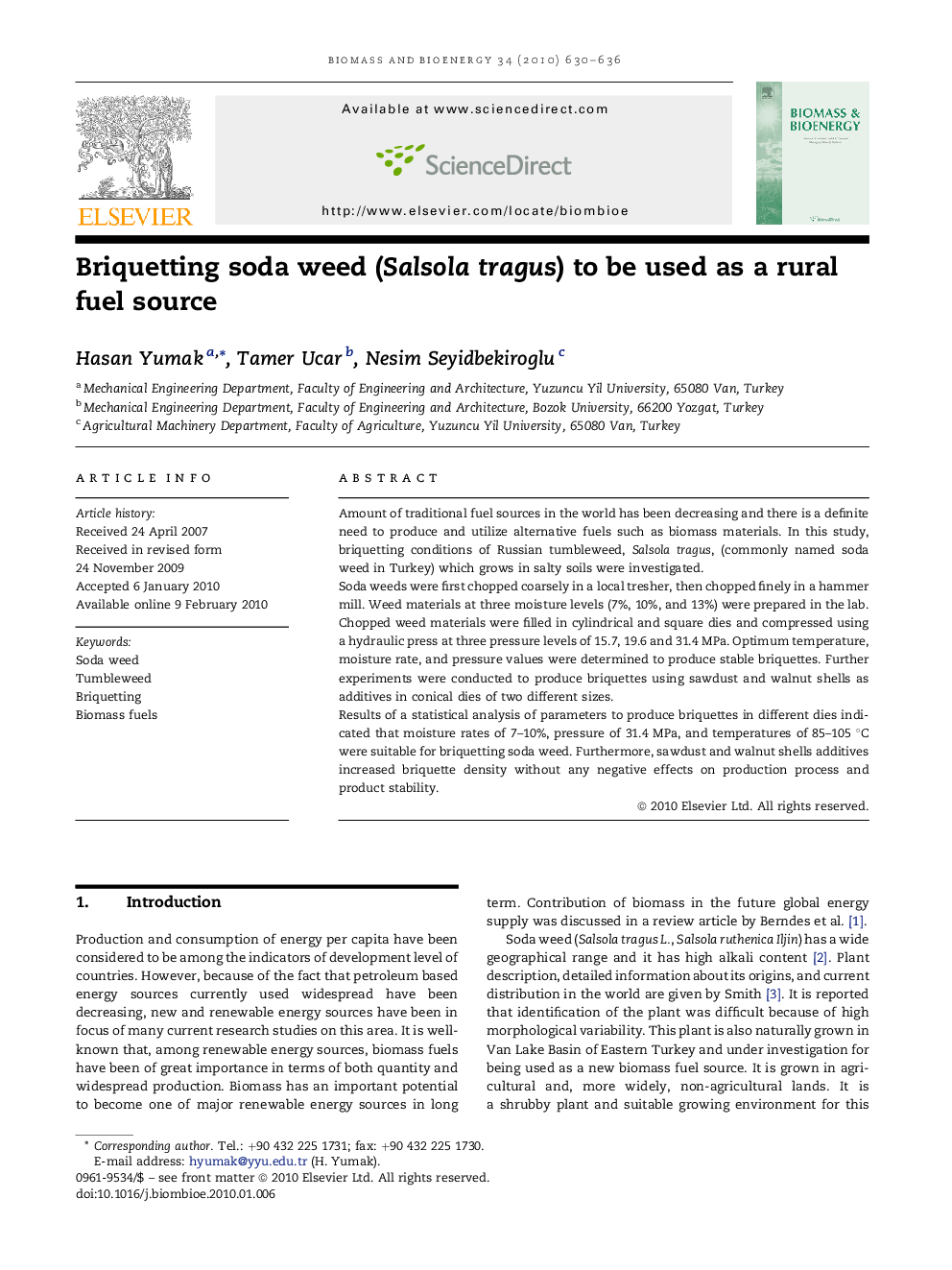| Article ID | Journal | Published Year | Pages | File Type |
|---|---|---|---|---|
| 678343 | Biomass and Bioenergy | 2010 | 7 Pages |
Amount of traditional fuel sources in the world has been decreasing and there is a definite need to produce and utilize alternative fuels such as biomass materials. In this study, briquetting conditions of Russian tumbleweed, Salsola tragus, (commonly named soda weed in Turkey) which grows in salty soils were investigated.Soda weeds were first chopped coarsely in a local tresher, then chopped finely in a hammer mill. Weed materials at three moisture levels (7%, 10%, and 13%) were prepared in the lab. Chopped weed materials were filled in cylindrical and square dies and compressed using a hydraulic press at three pressure levels of 15.7, 19.6 and 31.4 MPa. Optimum temperature, moisture rate, and pressure values were determined to produce stable briquettes. Further experiments were conducted to produce briquettes using sawdust and walnut shells as additives in conical dies of two different sizes.Results of a statistical analysis of parameters to produce briquettes in different dies indicated that moisture rates of 7–10%, pressure of 31.4 MPa, and temperatures of 85–105 °C were suitable for briquetting soda weed. Furthermore, sawdust and walnut shells additives increased briquette density without any negative effects on production process and product stability.
